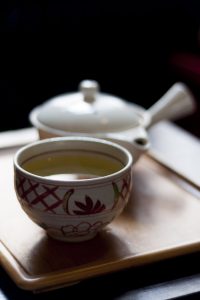 Regular tea drinkers can take heart – their beverage choice appears to encourage a healthy oral microbiome.
Regular tea drinkers can take heart – their beverage choice appears to encourage a healthy oral microbiome.
With increasing interest in the link between oral and systemic health, that cuppa might also help protect tea drinkers from cancers such as head and neck, pancreatic and oesophageal cancer.
A US study performed 16S ribosomal RNA sequencing on mouthwash samples from almost 1,000 participants in two cancer screening and prevention cohorts. Coffee and tea intake were assessed using food frequency questionnaires.
It found at least one cup of tea per day but not coffee was associated with increased richness and diversity of the oral microbiota.
The association was only significant for regular tea and not decaffeinated tea. They did not have information on the type of tea, either green or black, or whether it was drunk iced or hot.
Tea drinking was also associated with a shift in the overall composition of the oral microbiome. Three or more cups of tea per day increased the abundance of Fusobacteriales, Clostridiales and Shuttleworthia satelles and reduced Bifidobacteriaceae, Bergeyella, Lactobacillales and Kingella oralis.
Higher coffee intake was only associated with greater abundance of Granulicatella and Synergistetes.
The study said both tea and coffee comprised many bioactive chemicals that could impact the oral microbiome.
“Though we did not observe significant associations of tea intake with known cariogenic or periodontal pathogens (i.e. Streptococcus mutans, Porphyromonas gingivalis), tea drinking was associated with significantly greater diversity and altered composition of the oral microbiota.”
“Greater diversity of a microbial community is generally thought to be beneficial, as it bestows functional versatility on the community and indicate non-dominance by pathogenic bacteria.”
The study said both tea and coffee have been associated with a reduced risk of head and neck cancer.
“Though beyond the scope of the current study, further research may elucidate whether tea-driven changes to the oral microbiome contribute to tea’s chemopreventive action.”